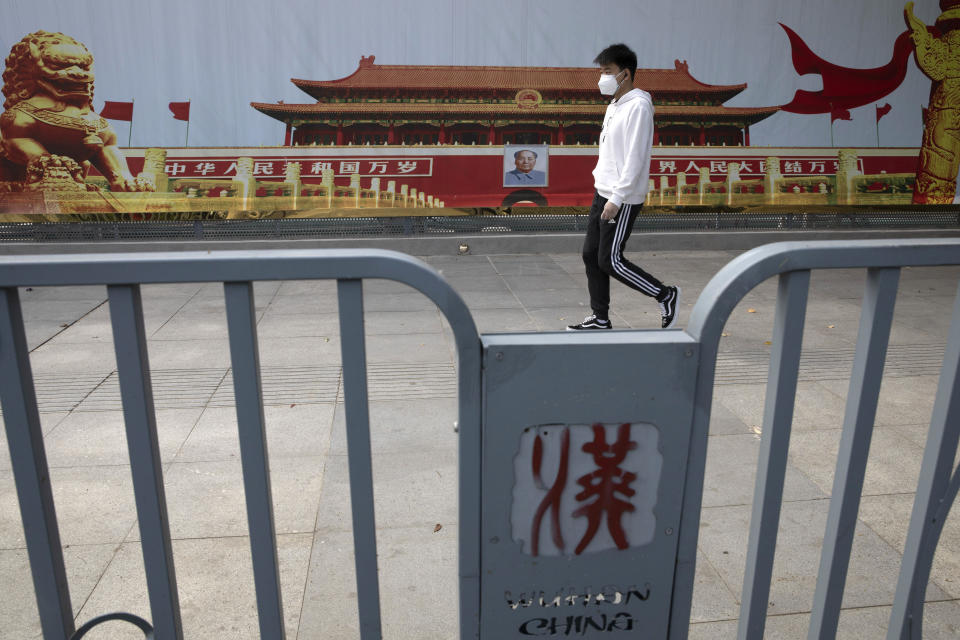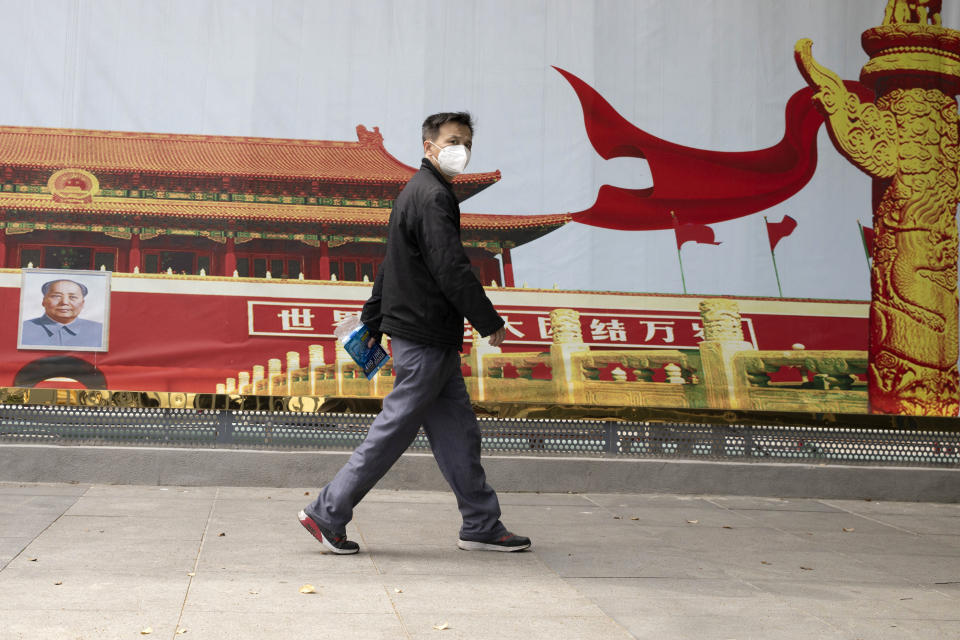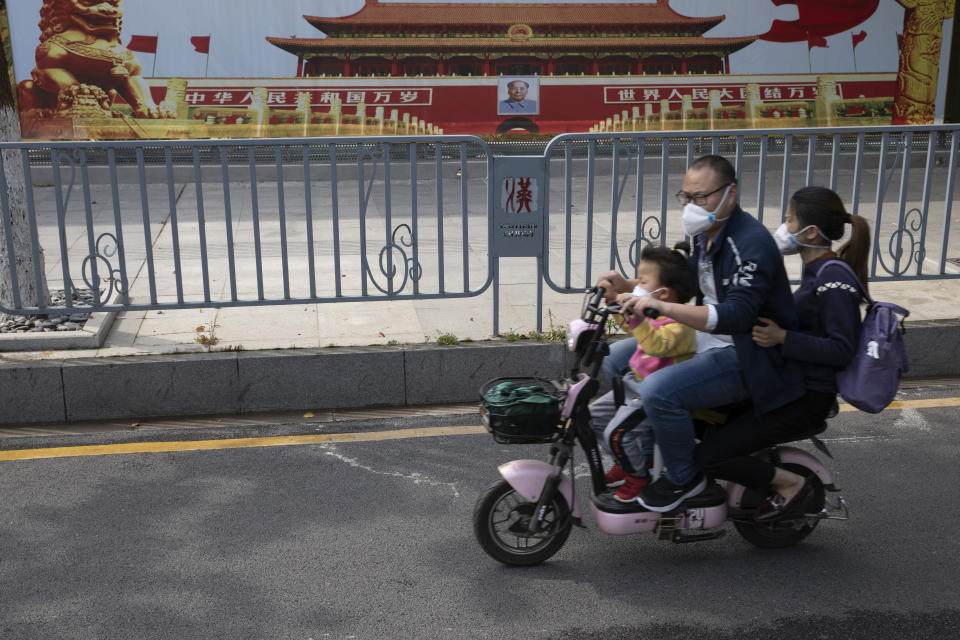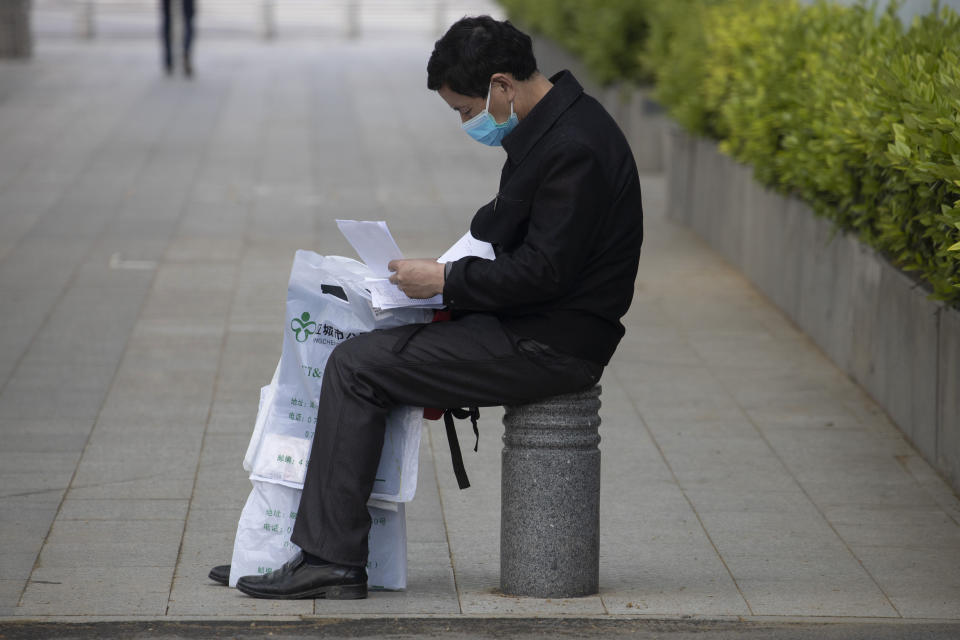Takeaways from internal documents on China's virus response
On Jan. 14, China’s top health agency told provincial officials that they were facing a likely pandemic from a new coronavirus — but didn't alert the public for six key days.
President Xi Jinping warned the public on the seventh day, Jan. 20. By then, more than 3,000 people had been infected, according to retrospective infection data.
The week of silence came at a critical time — the beginning of the outbreak. Internal documents obtained by The Associated Press show the National Health Commission ordered secret pandemic preparations, even as it downplayed the outbreak on national television.
Takeaways from the internal documents:
“THE MOST SEVERE CHALLENGE SINCE SARS”
The documents include a memo about a secret teleconference on Jan. 14 held by China's top health official, Ma Xiaowei. Ma called the situation “severe and complex, the most severe challenge since SARS in 2003," and predicted that it is "likely to develop into a major public health event."
"All localities must prepare for and respond to a pandemic,” the memo said.
The memo stated that the teleconference was held to convey instructions on the coronavirus from President Xi Jinping, Premier Li Keqiang and Vice Premier Sun Chunlan, but did not specify what those instructions were.
A CRITICAL TIME
During the week of public silence, tens of thousands of people dined at a mass Lunar New Year banquet. Millions also traveled through Wuhan for Lunar New Year festivities.
The early delay set the stage for a pandemic that has infected more than 2 million people and taken more than 133,000 lives.
THAILAND JOLTS CHINA AWAKE
From Jan. 5 through Jan. 17, China’s Center for Disease Control did not register any cases from local officials, internal bulletins obtained by the AP confirm — even though hundreds of patients were appearing in hospitals across the country.
Doctors and nurses in Wuhan said there were many signs the coronavirus could be transmitted between people by late December. But officials set stringent criteria for confirming cases. And they punished doctors who warned about the disease.
It took the first confirmed case outside China, in Thailand on Jan. 13, to jolt leaders in Beijing into recognizing the possible pandemic before them.
PANDEMIC PREPARATIONS
Health authorities prepared for the pandemic in private.
After the Jan. 14 teleconference, they distributed test kits and told health officials across the country to screen patients. They ordered hospitals to open fever clinics, and doctors and nurses to don protective gear. They instructed officials in Hubei province, where Wuhan is located, to begin temperature checks at transportation hubs and cut down on large public gatherings.
They did it all without telling the public.
"EMPHASIZE POLITICS”
The documents show how political considerations may have shaped China’s response to the outbreak.
In the memo, Ma demanded officials unite around Xi, and prioritize social stability during the long lead-up to China’s two biggest political meetings of the year in March.
“Emphasize politics, emphasize discipline, emphasize science,” the memo cites Ma as saying.
The meetings may be one reason for the six-day wait to make concerns public. They were later canceled.




